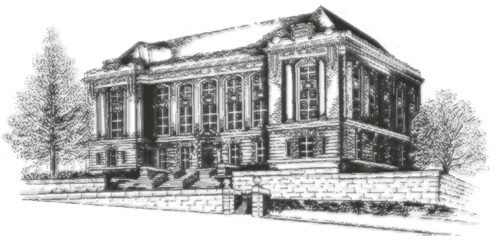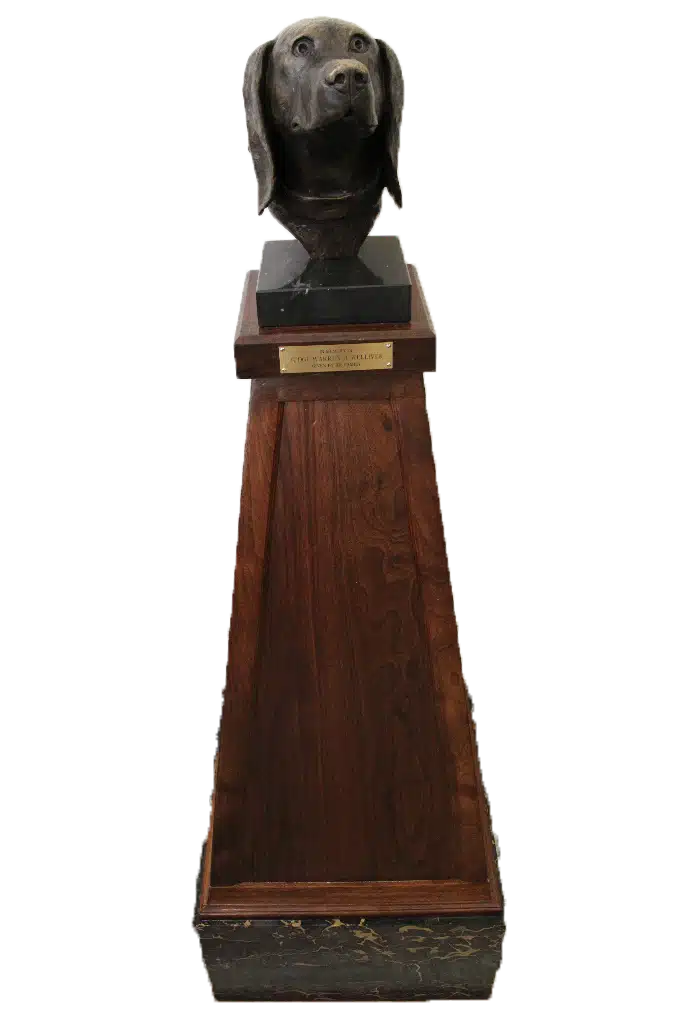Have you ever heard the phrase “a dog is a man’s best friend?” It may seem like a saying as old as time, but the famous Missouri Supreme Court case of Burden v.Hornsby of 1870 is considered a potential origin for the phrase.
In September, 1870, the Johnson County courtroom was the setting for the “most celebrated dog case … in the world.” When Leonidas Hornsby shot his neighbor and brother-in-law Charles Burden’s best hunting dog, Old Drum, Burden first threatened to kill Hornsby but instead sued for $100. Hornsby had been employing his nephew to guard his flock of sheep, but denied giving any instruction to shoot Old Drum.
After two trials, the jury found Hornsby guilty of ordering his nephew to kill Old Drum and awarded Burden $25, but that judgment later was reversed. At the third trial, Burden’s lawyer, George Graham Vest, delivered an emotionally wrenching closing argument, “Eulogy for a Dog.” When he finished, the jurors were in tears, and they awarded Burden $50. Hornsby appealed to the Supreme Court of Missouri, but the decision stood. Vest’s closing argument gained popularity and brought fame to the now classic phrase.
Eulogy for a Dog
The best friend a man has in the world may turn against him and become his enemy. His son or daughter that he has reared with loving care may prove ungrateful. Those who are nearest and dearest to us, those whom we trust with our happiness and our good name, may become traitors to their faith. The money that a man has, he may lose. It flies away from him, perhaps when he needs it most.
A man’s reputation may be sacrificed in a moment of ill-considered action. The people who are prone to fall on their knees to do us honor when success is with us may be the first to throw the stone of malice when failure settles its clouds upon our heads.
The one absolutely unselfish friend that a man can have in this selfish world, the one that never deserts him and the one that never proves ungrateful or treacherous, is his dog.
A man’s dog stands by him in prosperity and in poverty, in health and in sickness. He will sleep on the cold ground, where the wintry winds blow and the snow drives fiercely, if only he may be near his master’s side. He will kiss the hand that has no food to offer, he will lick the wounds and sores that come in encounters with the roughness of the world. He guards the sleep of his pauper master as if he were a prince. When all other friends desert, he remains. When riches take wings and reputation falls to pieces, he is as constant in his love as the sun in its journey through the heavens.
If fortune drives the master forth an outcast in the world, friendless and homeless, the faithful dog asks no higher privilege than that of accompanying him to guard against danger, to fight against his enemies, and when the last scene of all comes, and death takes the master in its embrace and his body is laid away in the cold ground, no matter if all other friends pursue their way, there by his graveside will the noble dog be found, his head between his paws, his eyes sad but open in alert watchfulness, faithful and true even to death.

